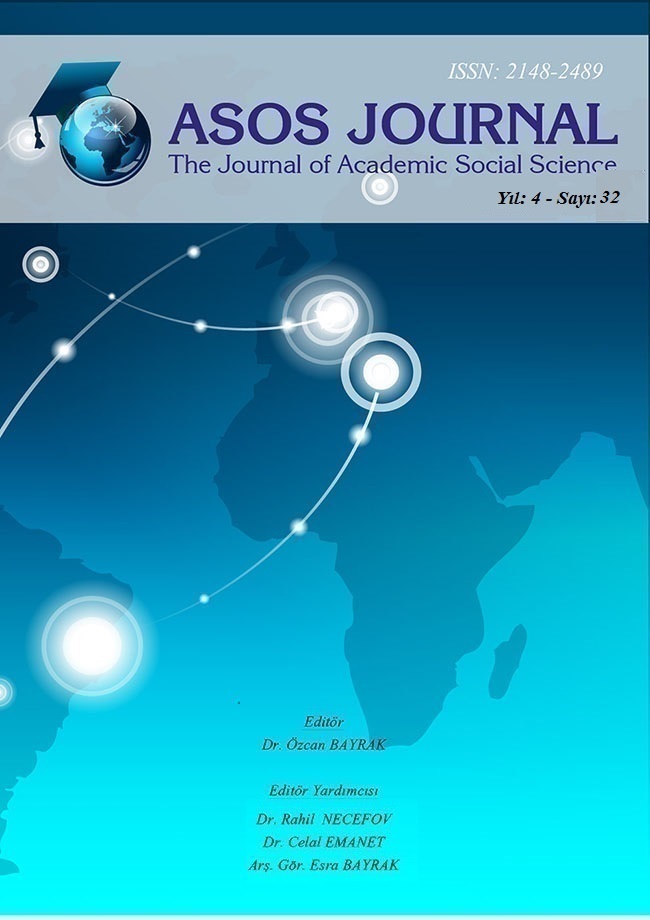Author :
Abstract
Appointment with Death (Ölümle Randevu) (1938) Agatha Christie’nin otuz üç kitabı kapsayan Hercule Poirot serisinden ve yedi tane oryantal temalı romanlarından birisidir. Christie’nin mekân olarak Doğuyu kullandığı romanlarını arkeolog kocası Max Mallowan’ın keşif gezileri dolayısıyla Orta Doğu’ya yapmış olduğu gezilerin etkisinde kalarak yazdığı bilinmektedir. Yine de roman Doğu dünyasına ve insanına karşı olan oryantalist tavrından – ki bu tavır Christie’nin sadece gerçek yaşam deneyimleri vasıtasıyla değil Doğu ve doğulu hakkındaki önyargılar ve klişelerden edindiği bir tavırdır – dolayı postkolonyal bir okumayı mümkün kılmaktadır. Bu makalenin amacı Christie’nin Ölümle Randevu adlı romanında Doğu ve doğu insanı, değerleri ve doğuya özgü şeylerin yansımasımasını araştırmaktır. Çalışmanın teorik temelini Edward W. Said’in çığır açan Oryantalizm (1978) adlı kitabı oluşturmaktadır. Said tarafından tanımlandığı üzere Oryantalizm, dünyayı Batı ve Doğu olmak üzere yapay bir biçimde ikiye
Keywords
Abstract
Appointment with Death (1938) is Agatha Christie’s one of thirty-three Poirot novels and of seven oriental novels. It is known that Christie wrote her novels with oriental settings under the impressions of her own experiences in the Middle East gained through the archeological expeditions due to the explorations of her archeologist husband, Max Mallowan. Yet Appointment with Death offers a postcolonial analysis owing to its orientalist attitude to Eastern world and people – an approach that seems to have been adopted by Christie not only by the real impressions but the prejudiced ideas and clichés about the Orient and oriental. The essential aim of this paper is to detect the portrayal of the Orient and oriental people, things, values and so on in Appointment with Death. Edward W. Said’s critique of Orientalism as defined and explained in his groundbreaking work, Orientalism constitutes the theoretical base of this study. Orientalism has been defined by Said as a Eurocentric belief and





